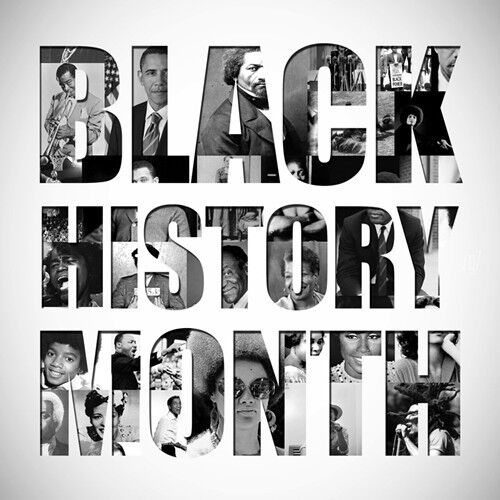Celebrating Black History Month
January 31, 2021
Since the year 1976 in the United States, each president at the current time has identified February as Black History Month and has endorsed a theme for the month as well.
The Black History Month 2021 theme, “Black Family: Representation, Identity and Diversity,” was presented in order to explore the African diaspora and the spread of Black families across the United States, according to history.com.
Kenyatta Shamburger, assistant dean of students and director of Multicultural Student Affairs, described Black History Month to be a celebration and recognition of African American and Black folks throughout history and in the present.
“Black History Month is an annual celebration in February that highlights and recognizes the achievements of African American/Black folks,” Shamburger said. “This month is an opportunity to recognize the central role that Black/African American folks have played and continue to play in U.S. history. The United States has celebrated Black History Month in February for more than four decades as a time to recognize and honor the achievements and contributions of Black Americans.”
The story of Black History Month began in Chicago during the summer of 1915, where an alumnus of the University of Chicago with many friends in the city, Carter G. Woodson, traveled from Washington, D.C., to participate in a national celebration of the 50th anniversary of emancipation, sponsored by the state of Illinois. During this celebration, thousands of African American and Black folx traveled from across the country to see exhibits highlighting the progress their people had made since the destruction of slavery, during which Woodson joined the other exhibitors with a Black history display, according to The Association for the Study of African American Life and History.
Following this, the first real idea of Black History Month was presented in 1926 by Woodson as a history week, which has since been changed to Black History Month.
Shamburger explained the significance of Black History Month comes from the story and experiences of Black Americans and the true history of Black America.
“Black History Month is the story and celebration of Black America,” Shamburger said. “This is important because this month gives way to examine the soul of America through policy and character. The Black experience in America has been a disparate one. Black History Month aims squarely at this truth. Dr. Carter G. Woodson, the framer of Black History Month, believed that celebrating Black history was a political act to ‘destroy the dividing prejudices of nationality and teach universal love without distinction of race, merit or rank.’”
As well, Shamburger gave a quote that he said was important to reflect and consider during Black History Month.
“Since its inception, Black History Month has never been just a celebration of Black America’s achievements and stories — it’s part of a deliberate political strategy to be recognized as equal citizens.” – Dr. Theodore Johnson.
Shamburger also explained how people can choose to celebrate Black History Month. He said people can learn more about Black history — and go deeper than Martin Luther King Jr., Rosa Parks, George Washington Carver, Harriet Tubman and Malcolm X. People can read nonfiction or fiction books by Black authors, find ways to amplify Black voices, attend a lecture or talk, support Black-owned or Black-operated businesses and nonprofits and share them on social media, promote Black art, film and literature and be an advocate for change.
However, Shamburger pointed out that these activities are not just for Black History Month.
“These can and should also be done all year round … not just in February,” Shamburger said.
Shamburger also said Iowa State is holding activities, events and learning opportunities during Black History Month.
These events are both online and in person, including:
-
Memorial Union Workspace: Drop-in craft: Ankara wrapped bracelets. Ankara fabric (or African wax printing) is created through a wax-resistant dyeing technique and is known for its vivid colors and bold patterns. Find a combination of Ankara fabrics that you like and staff will show how to wrap them around the cord to make a set of three bracelets sized just right. Open to all ages if accompanied by an adult. Cost is $8 in studio; $10 to-go or delivery. The craft will be offered from 2 to 9 p.m. Mondays through Fridays and from 10 a.m. to 4 p.m. on Saturdays, and it will be available from Jan. 25 to Feb. 13. (Student Activities Center)
-
Throughout February, online: The Office of Multicultural Student Affairs is planning social media content throughout the month to celebrate and educate on Black history.
-
Throughout February, Parks Library: “A Home Away From Home: The George A. Jackson Black Cultural Center” is an exhibition to recognize the 2020 50th anniversary of the George A. Jackson Black Cultural Center at Iowa State. The exhibition will be open in February through the end of 2021. (University Library)
-
Online: A lecture is to be presented by Isabel Wilkerson, Pulitzer Prize winner, National Humanities Medal honoree and author of “The Warmth of Other Suns” and “Caste: The Origins of Our Discontents.” Wilkerson will deliver the Martin Luther King Jr. keynote address. The lecture is at 7 p.m. Feb. 8. (Office of Multicultural Student Affairs, Committee on Lectures)
-
Carver 101: Cyclone Cinema will be screening “Moonlight” at 7 p.m. Feb. 11 to 14 each night. (Student Union Board)
-
Carver 101: Cyclone Cinema will be screening “Just Mercy” at 7 p.m. Feb. 18 to 21 each night. (Student Union Board)
- Online: Thomas L. Hill Iowa State Conference on Race and Ethnicity (ISCORE), a comprehensive forum on issues of race and ethnicity at Iowa State and beyond, will be offered all day March 4 and 5. It’s free and open to Iowa State students, faculty and staff. The March 3 pre-conference is open to Iowa State faculty and staff.







